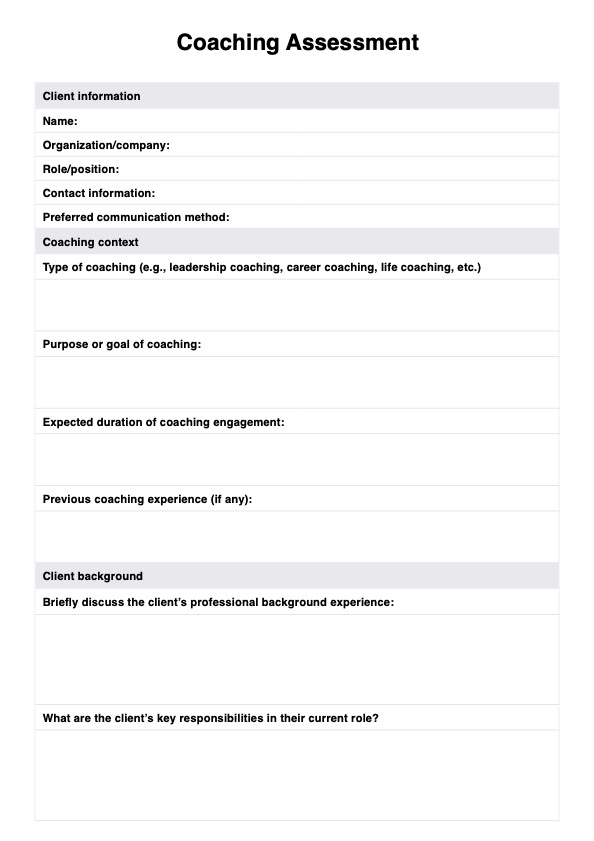Coaching assessments benefit coaches in aiding their clients' self-awareness and development, while individuals can utilize them to gain self-understanding and identify areas for improvement. It is helpful for career assessment, coaching Indianapolis, and many more. Organizations can also employ it to assess employees' strengths and weaknesses, identify development needs, and design training programs.

Coaching Assessment Tools
Unlock client potential and drive results with a Coaching Assessment. Set clear goals, track progress, and identify strengths. Elevate coaching practice today!
Coaching Assessment Tools Template
Commonly asked questions
Coaching assessments are versatile tools that can be used at any stage of the coaching process. Still, they are commonly employed in the initial steps to enhance self-awareness and identify areas for improvement. Assessments can help clients overcome obstacles throughout the coaching journey and monitor their progress effectively.
Coaching assessments serve various purposes, such as enhancing self-awareness, identifying areas for development, and tracking client progress. They offer insights into clients' personalities, values, and strengths, enabling coaches to tailor effective coaching plans that lead to personal growth and development.
EHR and practice management software
Get started for free
*No credit card required
Free
$0/usd
Unlimited clients
Telehealth
1GB of storage
Client portal text
Automated billing and online payments











